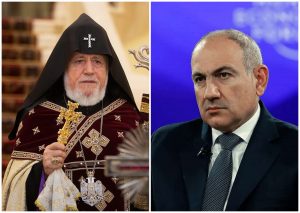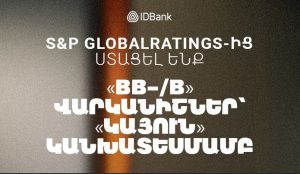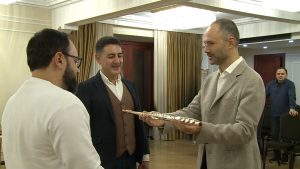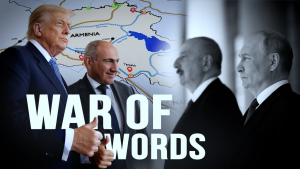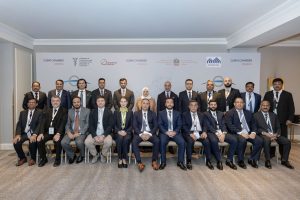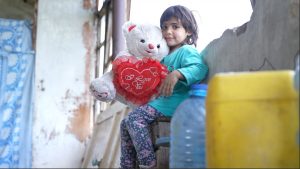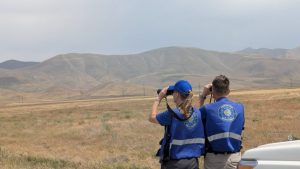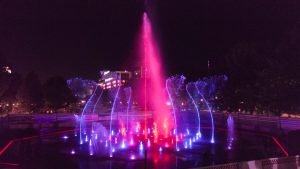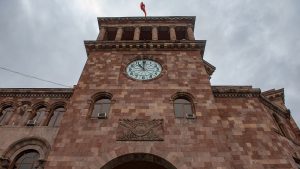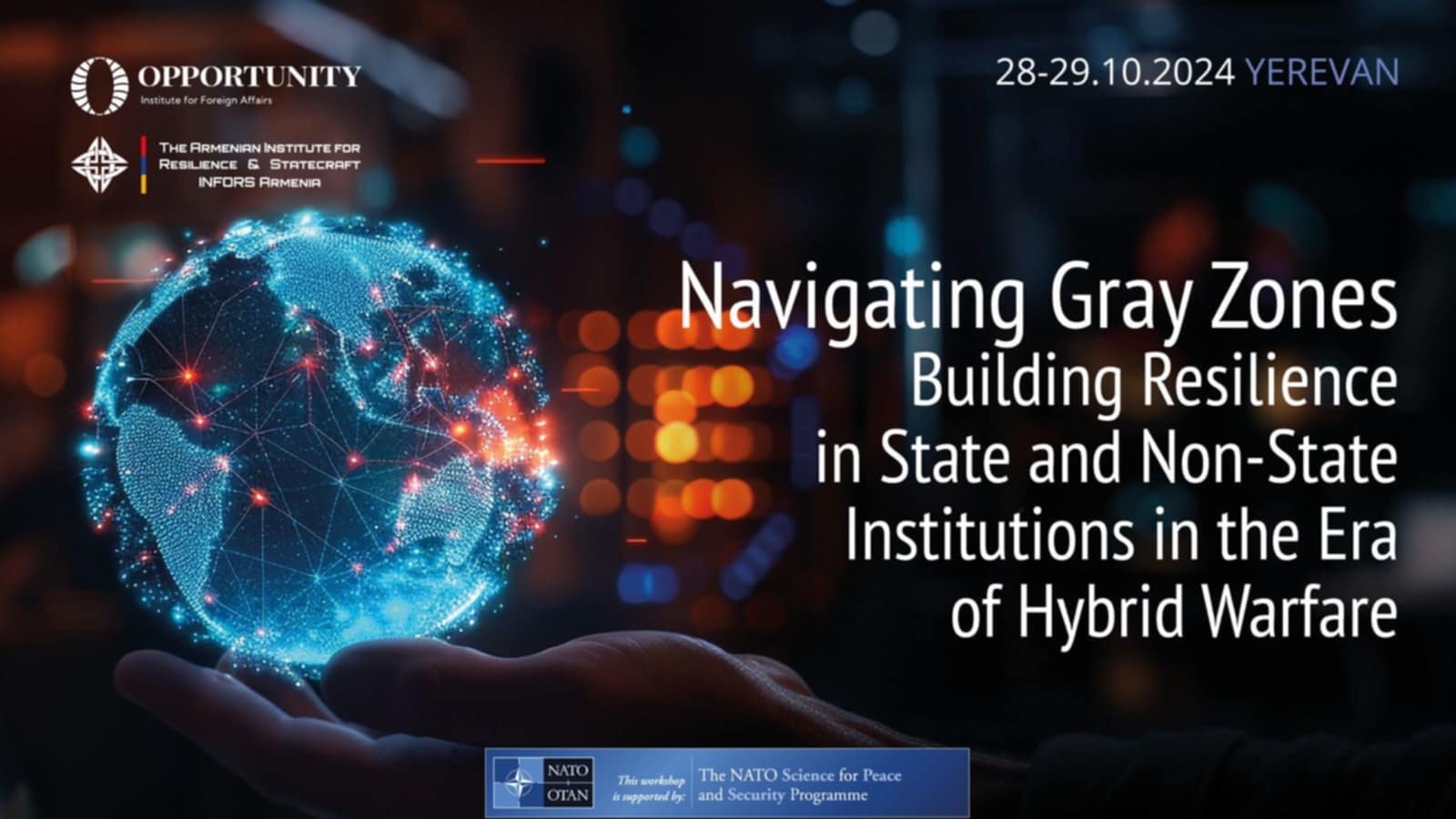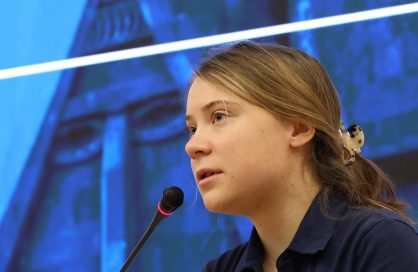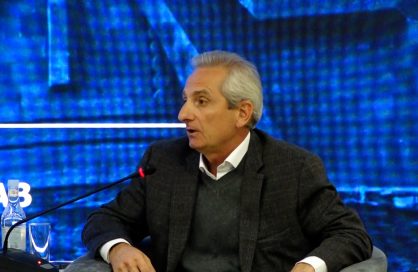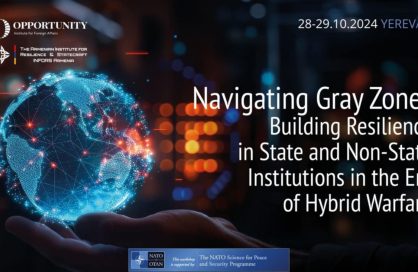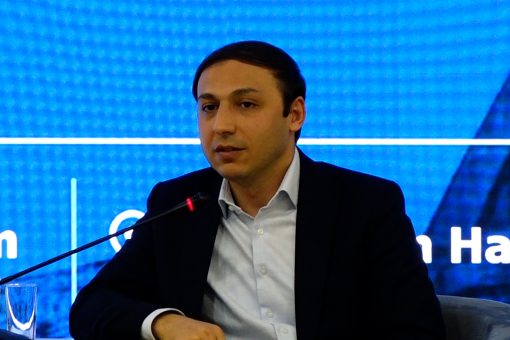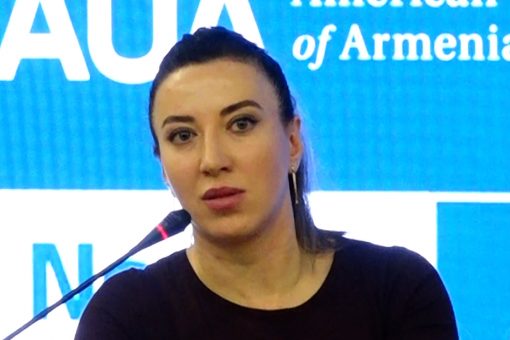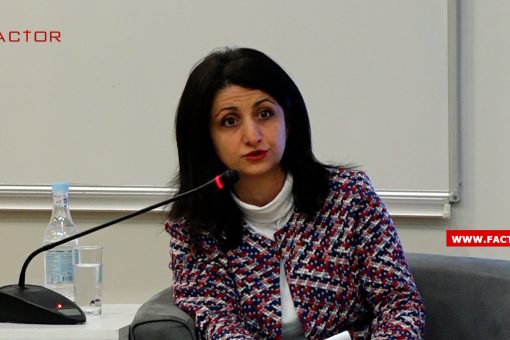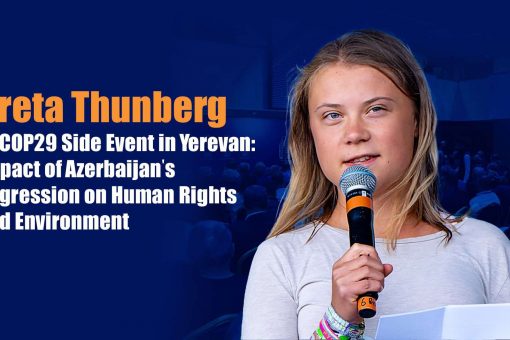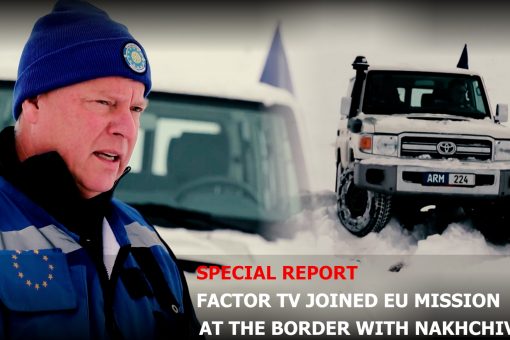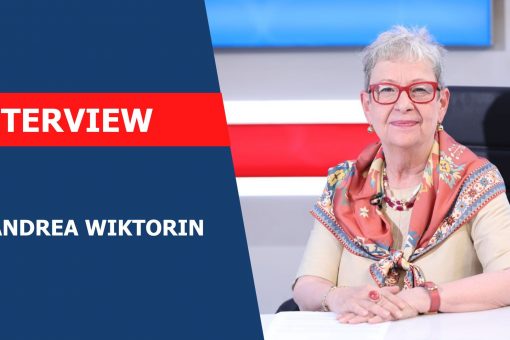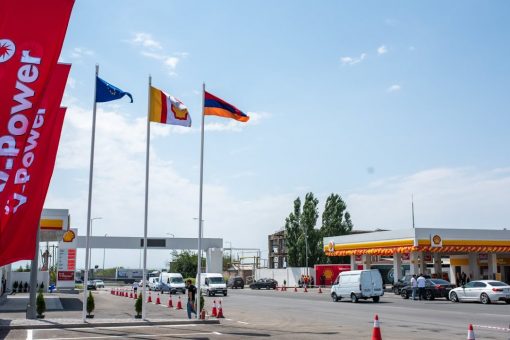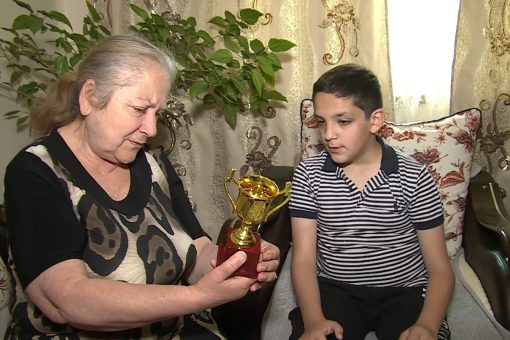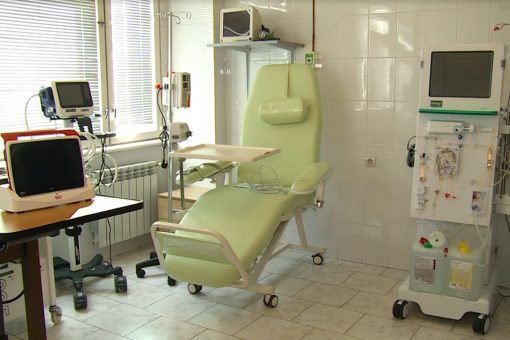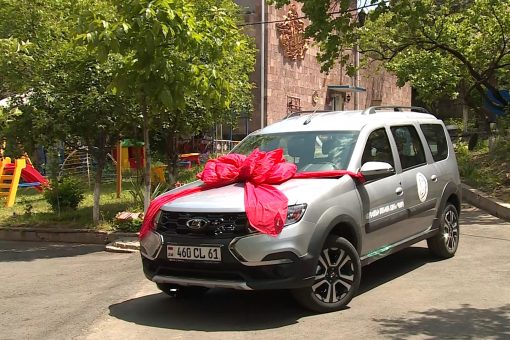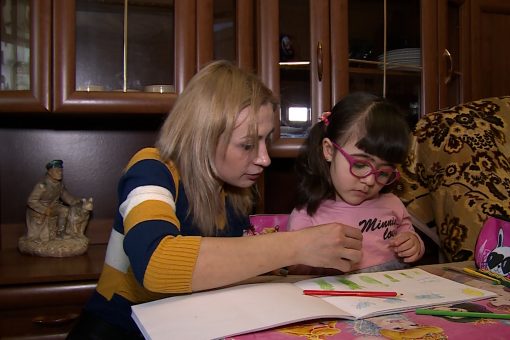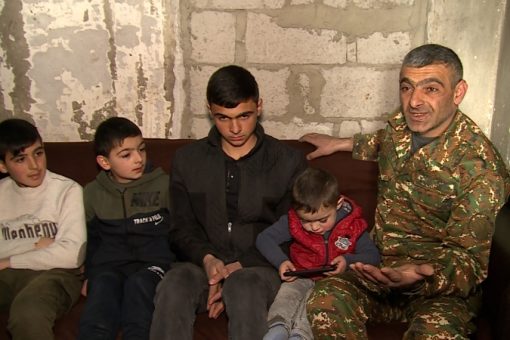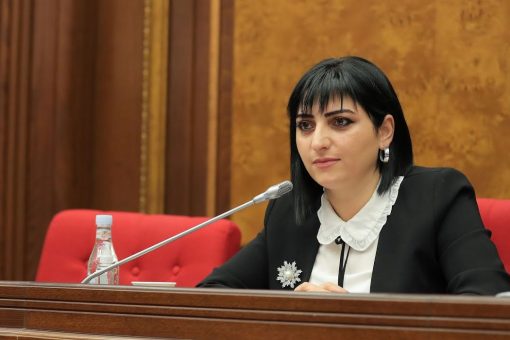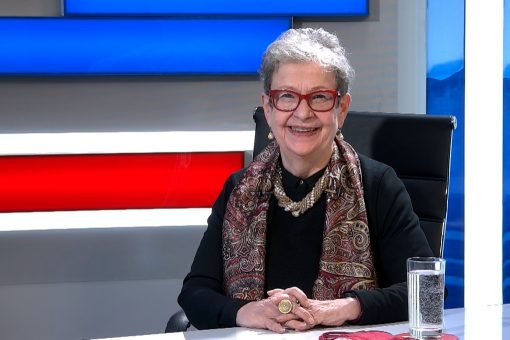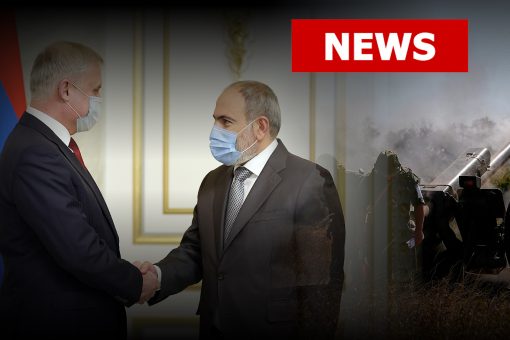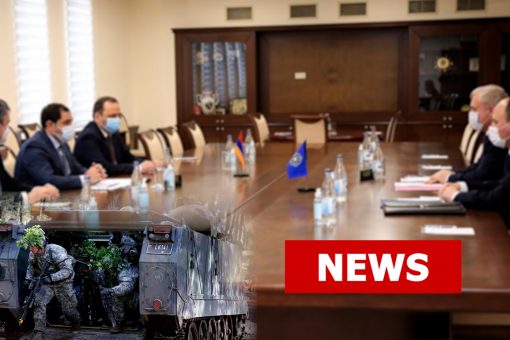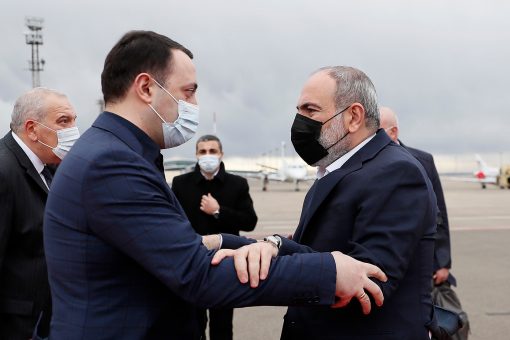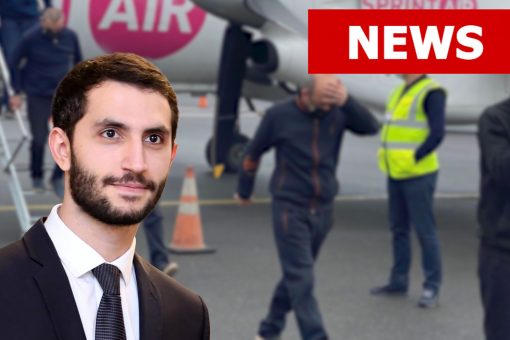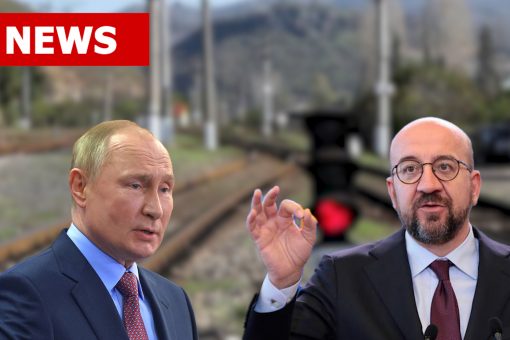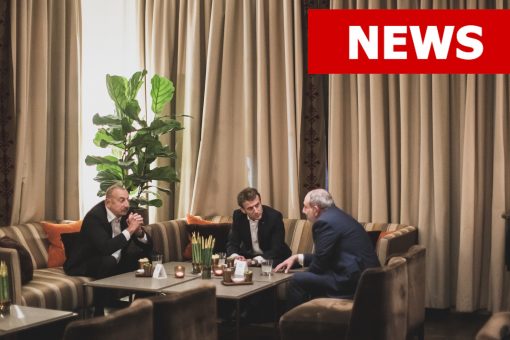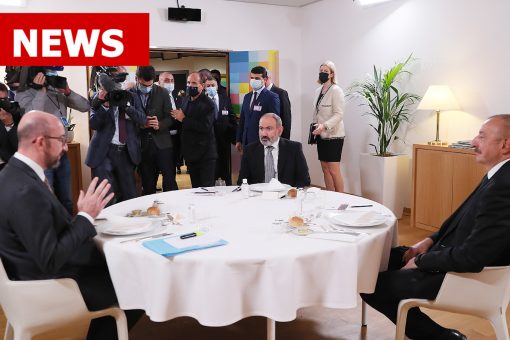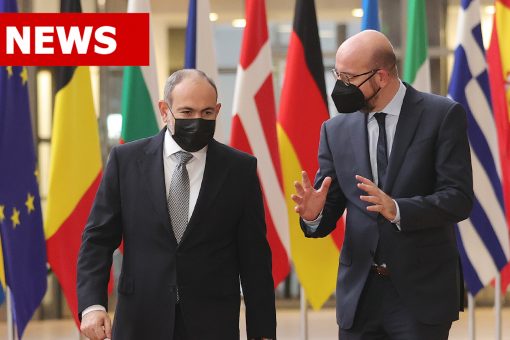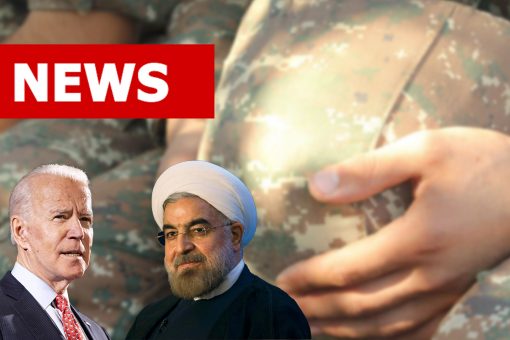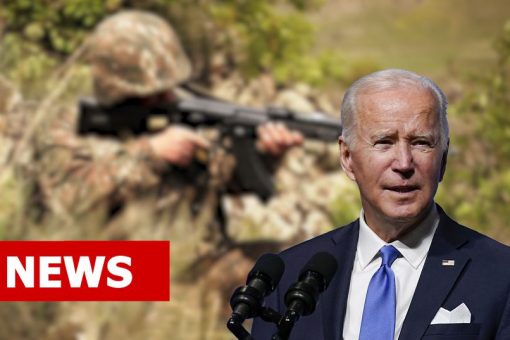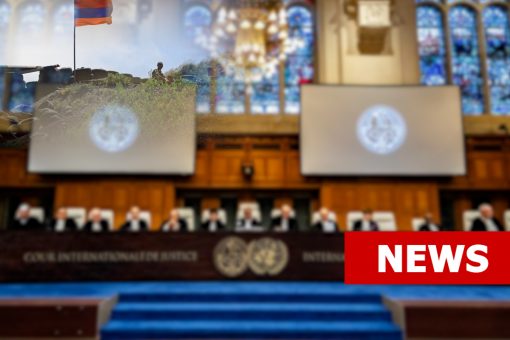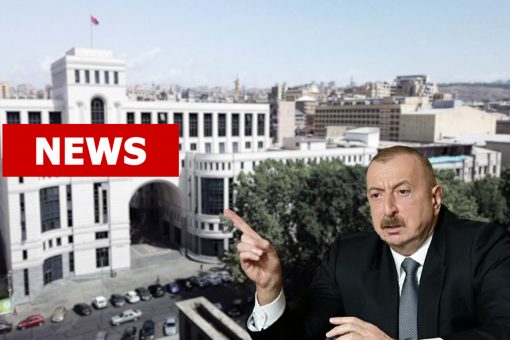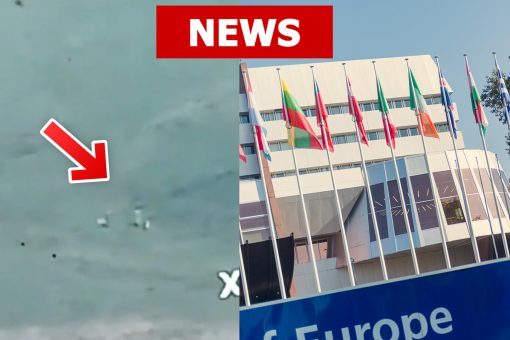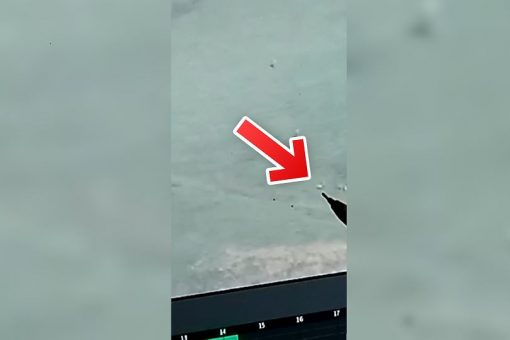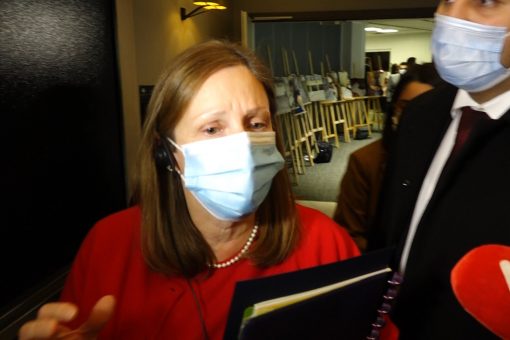Armenian-Azerbaijani post-war developments on the agendas of external actors in the South Caucasus – 2023
POLITICS
25.07.2023 | 17:00
From February to June 2023, our “Region” Research Center conducted a series of interviews with 20 foreign experts from 12 countries (USA, Russia, France, Germany, Great Britain, Ukraine, Moldova, Georgia, Turkey, Iran, Israel, Greece) on issues related to the degree of impact of the Armenian-Azerbaijani post-war developments on foreign policy interests of these countries and the transformation of their relationship agendas with the countries of the South Caucasus region. The selected experts also represent countries that are to a certain extent involved and directly interested in the processes deriving from the Armenian-Azerbaijani conflict (USA, Russia, the EU and some of its member states such as France, Germany, Greece, as well as Turkey, Iran, Israel), and countries which, for various reasons, view this conflict mainly through the prism of more global processes instigated by the Russian-Ukrainian war (Ukraine, Moldova, Great Britain). It is clear that such a classification of countries based on their interests and level of involvement in the Armenian-Azerbaijani context should be taken as an extremely conditional measure, since the two wars that unfolded in the early 21st century (the 2020 Karabakh war and the Russian-Ukrainian war, which has been ongoing since February 2022 to this day), with different dynamics and with varying engagement of primary beneficiary countries, have revealed even more the non-linear nature of the same country’s interests across different contexts of international relations.
This is a period of prioritizing the perception of the geopolitical interests of countries over all other components of international relations (such as general restrictions and norms, including in humanitarian issues, human rights, security guarantors, etc.).
Our questions posed to foreign experts (political scientists, analysts, journalists) concerned various aspects of their countries’ policies in the South Caucasus, which have been evident over the past three years. However, there were two central issues at the forefront, namely:
• what exactly the priorities driving these countries’ agendas in the context of the Armenian-Azerbaijani confrontation are, and what factors (threats or opportunities) shape these agendas;
• whether they see any prospect for resolving the Armenian-Azerbaijani conflict and establishing a regime of stability in the region.
On the Agendas of Countries and the Unshaped New Policy Algorithms in the South Caucasus
Countries can be basically split into two groups. The first group comprises the ones that pursue a certain policy in the region regarding the Armenian-Azerbaijani confrontation. And the second group of countries views this confrontation exclusively through the prism of Russia’s behavior in the region.
Without exception, all interviewees, including the Russian experts, acknowledge the change in the established policy algorithms and the balance of power in the South Caucasus, the activation of a number of countries and, conversely, Russia’s diminishing influence in the region. These changes are linked to the global international confrontation that emerged in the context of the Russian-Ukrainian war. “Russia is not the primary protagonist in the Caucasus” (American analyst J. Mankoff) ; “Russia has long ceased to be an exclusive player in the region” (Russian analyst A. Areshev) . Consequently, the outcome of the processes that unfolded in the context of the Armenian-Azerbaijani confrontation following the 2020 war is regarded as a derivative result, contingent upon the resolution of the Russian-Ukrainian war. “A lot will depend on the results of how the confrontation will unfold in Ukraine… Currently, the situation has changed so much that the balance of power seriously depends on the situation in Ukraine” (A. Dubnov). “There is a rather deep tangle of contradictions here, which in the current turbulent situation is compounded by the beginning of the Special Military Operation (SMO)” (A. Areshev). And the agenda maintained by Russia during the conclusion of the second Karabakh war (November 2020) has also undergone changes.
It is noteworthy, however, that the interviewed experts, drawing connections between the Armenian-Azerbaijani conflict and the outcome of the Russian-Ukrainian war, and generally emphasizing the shifting power dynamics in the South Caucasus, do not emphasize them as the reason behind Azerbaijan’s decision to initiate the second Karabakh war in the specific year of 2020.
In American analyst P. Stronski’s view, the US “sees a role in trying to mediate and trying to tone that down, recognizing that Russia doesn’t have the interests like it used to have and that Russia also is a very difficult partner for all of these countries. And it is a difficult partner for the United States”. While J. Mankoff regards the Russian-Ukrainian war as a proxy war, and as a result “both sides see the South Caucasus as another front in a wider geopolitical competition that has got much fiercer since the full-scale Russian invasion of Ukraine”.
A number of foreign experts underscore that their countries do not have specific agendas for the South Caucasus, and, in particular, for the Armenian-Azerbaijani conflict. Germany is one of these countries. Thus, according to German expert A. Rahr , the focus of this important EU country’s interest in the outcome of the Armenia-Azerbaijan confrontation lies in ensuring the containment of a new war, “because Europe cannot afford new flows of refugees, and, furthermore, Europe is so preoccupied with the Ukraine war that it will make every effort to prevent a second war in the post-Soviet space”. He also notes that unlike France (where there is a strong Armenian diaspora, which should provide support to E. Macron, who has domestic political difficulties), in Germany the priorities are set differently. There is a very strong Turkish diaspora in Germany, which also influences the big politics of Berlin.
Another German analyst, S. Meister, believes that the problem of the EU is that this policy does not respond to the apparent interconnections that exist among the conflicts in different regions, and for the European community to become a decisive player in the South Caucasus, these conflicts must be viewed in the same context. In the EU “there’s a lack of strategic understanding that this all is interconnected and you have to be more active in other fields to impact the other conflicts or the other players. Turkey is a key country. The EU needs to engage more with Turkey, it needs to rethink its Turkey policy and maybe even try to again integrate Turkey stronger with Europe because that will have an impact also on the Middle East, the South Caucasus and the Black Sea region. And this is interlinked also with Karabakh and Armenia-Azerbaijan conflict…”
Despite the efforts of France on the Armenian-Azerbaijani conflict, in French journalist R. Gente’s opinion, in the country now the French agenda is very much set by the far-right. And this makes politicians, and even President E. Macron, look through the prism of the needs of the French politics. “…By overplaying the support to Armenia – because they would be our Christian brothers in the East – we, Westerners, in reality often manipulate the “Armenian question” mostly to bother the Sultan, I mean the Turkish rulers in general… The 2020 conflict occurred six months before the French election. So, it became a part (although small) of the French election. And now indeed it continues as well, because it was somehow hijacked by part of the far-right side, who seek to focus on the identity issues and the place of immigration and Muslims in France”, our interviewee argued.
As an EU member state, Greece is interested in advancing the interests of the European Union in the region, including support for democratic values, human rights and the rule of law. Therefore, despite the ties with Armenia, Greece is demonstrating “tolerance towards the authoritarian state of Azerbaijan due to the latter’s energy plans with the European Union. Greece’s support for Armenia appears to be limited to the development of bilateral relations and distant diplomatic rhetoric” (E. Kokkinos).
According to the analysts from Great Britain, Ukraine, Moldova, the South Caucasus and the Armenian-Azerbaijani conflict over Karabakh should be primarily viewed through the prism of Russia. “Great Britain has been one of the strongest supporters, if not the strongest supporter in the west of Ukraine, and wants to hold the Russian aggression in Ukraine. In that sense, Britain will assist any country in the South Caucasus, which also wants to reduce Russian influence on it” (T. de Waal).
As observed by another British analyst, Neil Melvin, the main question for Great Britain currently is “how can a new balance of power be constructed in the region that would limit Russia’s ability to do that? So, the biggest question in some ways is for Armenia. Since Armenia has built a lot of its security on its bilateral relationship with Russia”. For Great Britain “it is more a question about the Black Sea, and how the countries of the South Caucasus can fit into that agenda”.
For Moldova, the outcome of the war in Ukraine “is an existential question… If Ukraine does not withstand, Russia will simply take over Moldova… The expert community, diplomats are following the developments, as they affect the region, and are studying Russia’s position” (V. Pasha) .
Ukraine’s interest in the South Caucasus was also influenced by Russia’s policy approach in the region, and now, in light of the ongoing war, the attention to this factor has become even more pronounced. “The Russian-Ukrainian war has taken a global significance, becoming the biggest war of the 21st century not only in Europe, but in the entire world. Acting as a magnifying glass, it displays other problems as well”, Ukrainian analyst Yevhen Mahda noted. In Ukrainian expert Ilya Kusa’s view, Ukraine “needs to reduce the Russian influence, not to allow to bypass sanctions, and to this end it is necessary to work with different countries, plus there is a need to diversify foreign policy. We realized that the world is big, a lot of processes can directly affect us, as well as Russia, and therefore us too…”
Georgian analyst Dimitri Moniava believes that the threats to Georgia are primarily linked to the war in Ukraine, “since there are fears that the war, one way or another, will roll into the territory of Georgia…” He argues that in Georgia, many concerns are related to transit determinism. Since Azerbaijan is Georgia’s key partner in transit projects, it is feared that its relations with Western partners will deteriorate. The interests of many players collide around the Karabakh problem, and hence the Kremlin may play on contradictions. Almost any escalation contains a potential threat to Georgian interests.
From the perspective of M. Saldadze, another Georgian analyst, “the Georgian government, unfortunately, does not have a clear position either on the Russian-Ukrainian war or on the Armenian-Azerbaijani one… I believe that the main problem is that the domestic political struggle responds to what is happening outside of Georgia only in relation to those issues that concern, for instance, the cooperation between Georgia and the EU. But, on the other hand, this is a question of the state’s self-identification, which should be somehow voiced by the political elite. We do not see that”.
According to Iranian analyst A.-F. Divsallar, over the past two or three decades, the South Caucasus has not been a top priority for Iran. Iranians see the region not as an opportunity, but as a cost. And now there is no certainty that “by putting more resources into the South Caucasus, Iran necessarily can gain major leverage regarding its great power competition while it has a sort of an alliance or good relations with Russia”.
Meanwhile, in the context of the Armenian-Azerbaijani conflict, Iran maintains a distinct agenda, as outlined by another Iranian specialist, V Kaleji: this is, in particular, “…preventing a new war between Armenia and the Republic of Azerbaijan, strongly opposing threats and blocking of the border between Iran and Armenia, preventing a change of international borders and regional balance of power, strengthening the 3+3 format, removing blockages from communication routes… and opposition with Israel’s intelligence and security penetration into the South Caucasus”.
The opinions of Turkish experts (K. Has, H. S. Ozertem) coincide in that Azerbaijan has been and remains an important partner for Turkey, which supports Azerbaijan in any issue in relations with Armenians. This policy has little to do with the personalities of the country’s leaders. Hence, if in the May 2023 elections in Turkey R. Erdogan had not secured victory, this would not have had a significant impact on the policies concerning relations with Armenia, as well as Azerbaijani-Armenian relations. And after all, the border with Armenia was not closed by the current leaders of Turkey, but rather in the 1990s under previous leaders. And it remains closed until now under subsequent leadership as well.
As for Israel, according to expert A. D. Epstein, “the South Caucasus region is not singled out for Israel… Israeli-Azerbaijani relationship to a very great extent is a derivative of Israeli-Iranian relationship. Azerbaijan is perceived as a base from which Israel conducts its at least intelligence, not to say sabotage activities against the military programs of the Islamic Republic of Iran. Armenia, on the contrary, acts as Iran’s ally, and this awfully alienates us from Armenia and brings closer to Azerbaijan, despite Armenian hopes”.
On the Prospects for Establishing a Stability Regime in the South Caucasus
Does the prospect for stability depend solely on the settlement of the Armenian-Azerbaijani contradictions?
Judging by the insights provided by the interviewed specialists, now, especially as a result of the Russian-Western confrontation, the established policy algorithms in the region have experienced changes. This factor has had the most significant impact on the South Caucasus, and this prospect will essentially hinge upon the outcome of this particular war. There are attempts to promote one’s own interests in the region: in the case of Western countries, this is, if possible, driving out Russia of the South Caucasus, supporting countries that will move away from Russia (apparently, meaning not only Armenia, but also Azerbaijan), in the case of other countries – Turkey, Israel, Iran – it is the advancement of their own interests, which in their turn are competitive, and in the case of Iran and Israel – hostile. However, analysts do believe that today the key obstacle to establishing a regime of stability in the region is the lack of resolution in Armenian-Azerbaijani relations. There are rare references to Georgian-Russian and Armenian-Turkish contradictions that make it difficult to establish long-term stability in the region.
Russian analyst A. Dubnov believes that it is hard to be optimistic regarding that issue also due to the “deeply rooted level of mutual hatred on both sides, and, in general, sometimes pretty astonishing regimes. I’m not talking about Azerbaijan – from the point of view of inciting hatred, lots of things were done there by the leadership”. According to A. Areshev, another Russian analyst, currently the establishment of a stability regime in the South Caucasus is also challenging because of the attempts of the West to penetrate the region. “If the SMO had unfolded a bit differently, I’m not sure that there would have been the September (2022 – L. B.) events and other escalations”, he noted.
In fact, both American experts, like their Russian counterparts, also expressed skepticism about possible cooperation in the Armenian-Azerbaijani context between Russia and Western countries, including the United States. They deem this cooperation as unrealistic at present. This is despite the fact that, in both J. Mankoff’s and P. Stronski’s perspectives, both the United States and Russia would eventually like to have some kind of settlement, to see an Armenian-Azerbaijani agreement of some sort, since “both believe that in the event that there is a settlement, they will be better placed to take advantage of it” (J. Mankoff).
“In general, US-Russian relations, Russian-Europe relations have collapsed. They’ve collapsed to a level that I have never anticipated. They are the worst I have ever seen… And the worrying aspect of this is that all of the mechanisms that have been used by the international community, and all the mechanisms that Armenia, Azerbaijan, and Georgia have used to try to stabilize their countries and deal with both internal and external threats have atrophied over the last year as US-Russian relations and generally Russia-West relations have collapsed” (P. Stronski).
This pessimistic sentiment was also echoed by the experts from Germany, France, Great Britain, Greece, who unequivocally stated that now time will tell everything, and the prospects depend on the outcome of the Russian-Ukrainian war.
Some interviewed experts also highlighted the additional challenges in establishing a stability regime:
• German analyst S. Meister doesn’t believe that “…with this maximalist approach of Azerbaijan and the culture of victory and revanche peace will come. But if this problem is solved, if there is an agreement (maybe with the support and facilitation or even negotiation of the EU and the US) it would give external players less leeway on both countries”.
• British analyst T. de Waal also highlights the problem of trust towards Russia in the three countries of the South Caucasus, including Armenia, “which is, as we know, formerly an ally of Russia, but feels that Russia is not fulfilling its obligations as an ally”.
• In Georgian political scientist M. Saldadze’s view, “…the question here is whether the Azerbaijani leadership will come to the conclusion that there are some lines that should not be crossed, as after that everything will change in the South Caucasus. Is it beneficial for Azerbaijan? There are victories that one can benefit from, but there are victories that are able to lead to more upsetting consequences. Let’s suppose Iran gets engaged. Does Azerbaijan need it? Will they go for it? And another question: to what extent is Turkey ready to make some compromise in order to set with its ally certain boundaries, and where should they stop?”
• While another Georgian expert, D. Moniava, considers that for the people of the region it is important “to see prospects for development, some bright goal ahead, not a mere opportunity for stabilization of the current state of affairs and another frozen conflict…”
• Both Turkish analysts also believe that apart from the Russian-Western confrontation, there are other challenges. This includes the necessity to change the mentality, and, first of all, this relates to Azerbaijan. “…I cannot understand why the Azerbaijani side does not accept the possibility of autonomy for the Karabakh Armenians after the war. Before the war, Baku had always intended to establish some level of autonomy: why did they change their mind?” (K. Has); “Azerbaijan is trying to put pressure on the Karabakh Armenians. Via Karabakh Armenians it wants to change the position of Yerevan, because the ones who are suffering at the moment are the people living in Artsakh. Karabakh Armenians have problems in accessing energy, food, medical resources, etc. Their suffering will be reflected” (H. S. Ozertem).
Another British analyst, N. Melvin, shared the strategic thinking prevailing in London regarding the envisioned conclusion of the war and the subsequent resolution of the security issue in this region. “A lot of this thinking is really about the Black Sea as a key security space where the focus will be on how to contain Russia… We’re going to see quite a different kind of security space begin to emerge. Not necessarily that we would see NATO or EU enlargement, but we are going to see a lot of support for Ukraine and not just to defend Ukraine, but Ukraine potentially as a regional security provider across the region and the Black Sea as a forum to do that. So I think from the UK side, it’s less a question in the future about the South Caucasus and more a question about the Black Sea, and how the countries of the South Caucasus can fit into that agenda. And then it isn’t really about this stability across the region but transport energy corridors and opening up the economies of potential investments and a wider political sets of relationships”.
Who will be able to unblock Nagorno Karabakh?
Our interviews were being conducted against the backdrop of various events and developments in the context of Armenian-Azerbaijani relations, and all of them were in one way or another highlighted by foreign experts. One of the questions was about the blockade (read more about the situation with the blockade here) of the Lachin Corridor, which began on December 12, 2022 and was ongoing at the time of each of these 20 interviews, and continues to persist up till now. Despite the wide international outcry over this blockade (in December 2022, an emergency meeting of the UN Security Council was convened on the blockade of the Lachin Corridor, in February 2023, the Hague International Court ruled to immediately unblock the corridor, in the first three months of the blockade, 37 countries and organizations issued statements and calls for the immediate lifting of the blockade), the humanitarian situation of 120,000 people in NK not only failed to improve but even deteriorated. No one will be able to stop us – statements of this kind by the President of Azerbaijan also referred to the blockade of the NK population. That is why, during the interviews, we posed the following question to the experts from different countries: “Which countries, organizations can ensure that Azerbaijan ends the blockade of the Lachin Corridor, and other forms of pressure on the residents of Nagorno Karabakh and Armenia?”
Russia – From A. Dubnov’s perspective, the unblocking is hampered by Armenia’s resistance, which “is not willing to satisfy the Azerbaijani demands, and, first of all, doesn’t agree to the idea of the so-called “Zangezur Corridor”, where it will lose control over this territory, and on the other hand – by the appearance in Karabakh of such a figure as Ruben Vardanyan, who actualized the issue of the status of Nagorno Karabakh, once again raising it to a rhetorical or partly a political level.” It should be highlighted, however, that after the resignation of R. Vardanyan from his post in NKR, no changes took place regarding the blockade.
A. Areshev argues that the unblocking cannot be accomplished by the Russian peacekeepers, since “any shot fired by Russian peacekeepers will lead to an immediate response and escalation, and I am not at all sure that Russian peacekeepers will come out victorious from it, given the forces and resources located along the perimeter of the territory – according to various estimates, several tens of thousands of people… It is clear that if Armenia ceases to act as a guarantor of the NKR security, the dialogue, in fact, falls onto the shoulders of the Russian peacekeepers and other structures. Given that Russia has long ceased to be an exclusive player in the region, their success will be limited”.
Both Russian experts emphasized that the blockade was not absolute, and that measures were still being taken to transport some cargo (referring to the delivery of a small amount of goods of first necessity with the help of peacekeepers, which in those days somehow mitigated the situation so that it did not roll into a complete humanitarian crisis. Nevertheless, since June 2023, these deliveries to Nagorno Karabakh via RPC vehicles have completely stopped at the request of Azerbaijan).
USA – J. Mankoff responded to this question approaching the issue from an opposing standpoint, and contemplating which external actors would definitely refrain from engaging in a confrontation with Azerbaijan because of the blockade. These are Turkey and Russia because the latter “is perfectly happy to play a playoff Armenia and Azerbaijan against one another”, as well as Europe “because it is seeking to diversify its dependence on Russian energy, and Azerbaijan plays a big role in that”.
And the US “because it’s just not a major priority. The US is not going to go against the Europeans on this issue”. However, J. Mankoff sees some sense in demonstrating that “things like ICJ rulings need to be enforced or it needs to be some effort or show that they are being enforced just to maintain the legitimacy of the ICJ as an institution”. The international network of countries capable of exerting pressure on Baku is currently lacking in terms of its effectiveness on this issue. According to P. Stronski, another US expert, the blockade is Azerbaijan’s leverage, “an agency of its own, and can sideline Russia”. And he himself would not have even imagined this method a few years ago. The blockade is one of the many issues the US is dealing with, and it has received top-level attention within the government, and they’re working on it. However, after a 20-year presence in Afghanistan, the public demands that no more US troops be deployed anywhere else. And this is relevant to Ukraine itself (presumably, even more so for the Karabakh conflict zone). From the point of view of American experts, the United States will not go against European countries and will not spoil relations with Azerbaijan – this is an important country.
France – French journalist R. Gente believes that more pressure from every partner is needed in these discussions for the Lachin Corridor to be unblocked. “While there have been some statements, I don’t see a significant effort to address this issue”. Because behind that step there is “the issue of the Karabakh status, and he is going beyond the text of the Declaration of November 2020. Mr. Aliyev, thus, is somehow rewriting this declaration (on the November 2020 ceasefire), trying to force a decision on the Karabakh status. This is unacceptable”.
Germany – In S. Meister’s opinion, “the problem is that Azerbaijan feels strong, they feel super militarily. And I don’t see at the moment any actor who has leverage or builds up leverage in Azerbaijan to negotiate a peace agreement acceptable for both sides”.
Great Britain – T. de Waal notes that “we saw the International Court of Justice ruling in February, which many hoped would stop this, but clearly, that’s just a court ruling. It doesn’t have any force on the ground. So international organizations can try… But clearly, I think Russia is the first actor that can stop this. But Russia for four months has done almost nothing and sort of watched, was a kind of witness, a bystander as the new checkpoint was set up. …This will stop when Azerbaijan feels that it wants to have less coercion and more diplomacy and when it feels that the price of using force is too high. But that moment has not arrived, unfortunately.”
Iran – Iranian expert A. F. Divsallar claims that “unfortunately, in a matter of blockade, we are seriously facing the factors of realpolitik, it’s not norms or ethics that matter here. And it is the truth about the situation. I understand the human cost of that, and that it is national problem for Armenians, it is very serious. But it could only be helpfully framed if it was framed in a broader geopolitical dynamic. Armenians probably would only be able to use that blockade if they can frame it properly in the geopolitical situation and see where it converts with the interest of other regional actors. For Iran the blockade matters because it is a factor of instability, it can be a wound, that can cause pain in the long-term matter. So, there is an area for pushing from the Armenian side in this matter. But I think we cannot approach that very realpolitik issue from a humanitarian dimension, which unfortunately, in realpolitik is very much the second factor”.
Turkey – In Turkish analyst H. S. Ozertem’s view, “…the most important country over here is Armenia itself… Similarly, Russia can play another important role… Another escalation or reignition of another regional conflict in the South Caucasus will undermine its interests. The third country is Turkey itself. The normalization process of Armenia and Turkey relations also is a good incentive to show that normalization serves the interests of the regional actors, and plus the societies of Armenia and Turkey. But, Turkey also has its own limitations considering Armenia’s, Azerbaijan’s, and Russia’s positions to the conflict itself… It’s hard to ignore the role of the European Union and the United Nations. I define them as catalyst roles. Azerbaijan is trying to put pressure on Karabakh Armenians. Via Karabakh Armenians it wants to change the position of Yerevan, because the ones who are suffering at the moment are the people living in Artsakh. Karabakh Armenians have problems in accessing energy, food, medical resources, etc. Their suffering will be reflected”.
Greece – Greek journalist E. Kokkinos believes that “…the lengthy blockade of Nagorno Karabakh by Azerbaijan, along with other forms of pressure, violence, and psychological oppression, are what make a peace treaty between the two countries impossible. This burdens Azerbaijan alone, as it undermines the trust necessary for a durable settlement”.
Israel – Historian A. Epstein claims that despite the outrageous blockade of the Armenian population of NK, “everyone’s hope for international diplomacy, foreign actors who will come and say “well, well, well, how can you do that?”, for some kind of international structures is an illusion. Official Jerusalem does not in any way comment on the humanitarian crisis and the blockade of Nagorno Karabakh, no one cares about this. When an article about the matter was published in “Yedioth Ahronoth” (“Latest News”), the largest Israeli newspaper in Hebrew, it was reported that Azerbaijan was allegedly attributing this to environmental concerns, but these are trumped-up concerns: Azerbaijan is just pursuing such a policy. I haven’t seen a single protest action, not a single statement by the Israeli foreign minister, neither the old one nor the new one (our government has recently changed) on this topic, because Israel does not want to mess with Azerbaijan, as Azerbaijan is important. And also because Israel, after many years of extreme tenseness, now has some warming in relations with Turkey, and at the same time, Israel has extremely bad relations with Iran, which is an Armenian ally. Through the prism of these geopolitical factors, Israel does not and will not pay attention to the Karabakh factor…”
Georgia – Georgian analyst D. Moniava argues that “unfortunately, Georgian public lacks proper awareness of the events in Karabakh. It is not a common topic in media or social networks. Closer scrutiny of the matter suggests that at the outset of the conflict Georgian society was mostly exposed to interpretations that were advantageous for Baku. The balance started to shift after the resolutions of European Parliament, statements from US and France. In December (2022 – L. B.), a group of Georgian Armenians held a protest in Tbilisi, calling on the Georgian government to condemn the actions of Azerbaijan. This also helped to draw attention to the topic. Georgian society is influenced by various factors – on the one hand, sympathy for civilians, on the other hand, the desire to see the Russian Federation gain as little as possible from the crisis… The Georgian government in coordination with foreign partners must certainly contribute to the settlement but also soberly assess its own, largely limited capacities”.
Another Georgian expert, M. Saldadze, emphasized that “…despite the fact that we are the closest neighbors, the Georgian public has no sensitivity towards this issue: it pains me to say this. The public reacts more to what is happening in Ukraine… The humanitarian aspect of this blockade, unfortunately, is not discussed either. Will it go further than the UN resolutions? Georgians have experience of such resolutions, and, unfortunately, there are no active steps. I don’t know how it will be in the case of Armenian-Azerbaijani relations, whether it will go beyond resolutions, but it is hard for me to imagine that an international military contingent may appear to draw a line of demarcation between the parties. As a result of the RF behavior in the post-Soviet space, global politics has changed a lot. Maybe it’s just our context that makes experts like me skeptical and depressing, but it’s quite hard to see any concrete steps that the international community, represented by the UN, can take”.
Findings of a Survey Conducted Among Foreign Analysts
Laura Baghdasaryan, Director of “Region” Research Center





